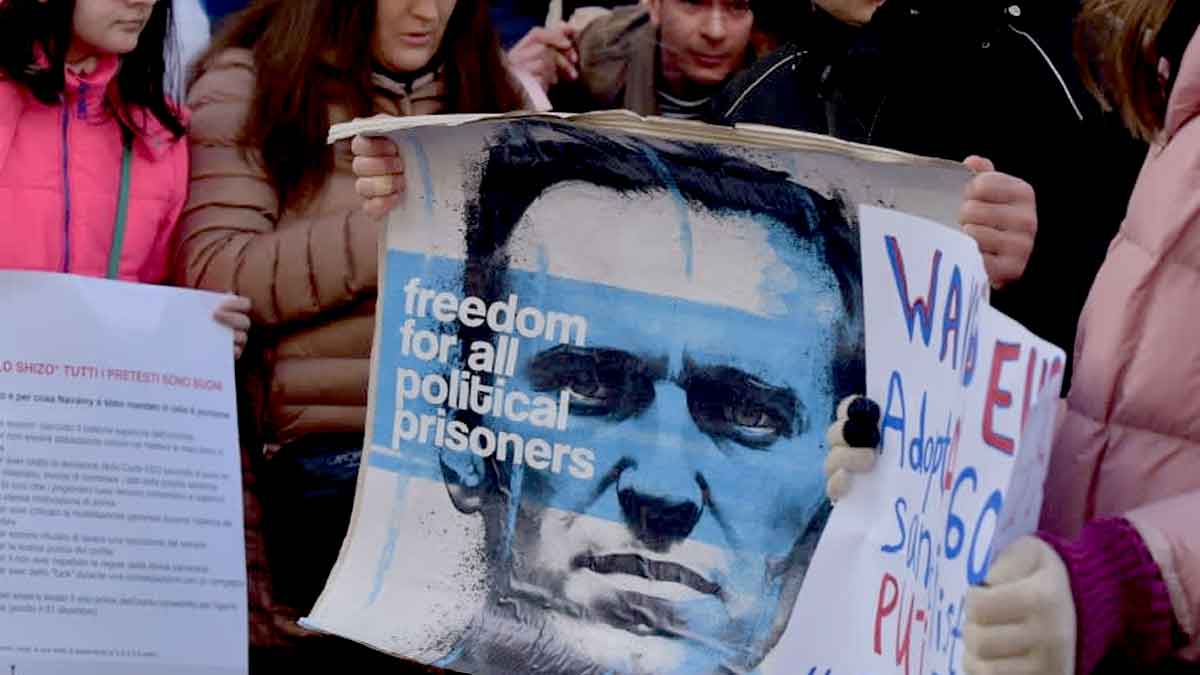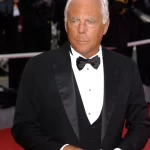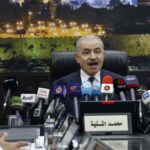- Home
- Billionaires
- Investing Newsletters
- 193CC 1000
- Article Layout 2
- Article Layout 3
- Article Layout 4
- Article Layout 5
- Article Layout 6
- Article Layout 7
- Article Layout 8
- Article Layout 9
- Article Layout 10
- Article Layout 11
- Article Layout 12
- Article Layout 13
- Article Layout 14
- Article Sidebar
- Post Format
- pages
- Archive Layouts
- Post Gallery
- Post Video Background
- Post Review
- Sponsored Post
- Leadership
- Business
- Money
- Small Business
- Innovation
- Shop
Recent Posts
Navalny Ally Alleges Putin Stopped Prisoner Swap Before Death

A key ally of Alexei Navalny has made shocking allegations, suggesting that Russian President Vladimir Putin may have played a role in Navalny’s death to sabotage a potential prisoner swap deal. Maria Pevchikh, the chair of Navalny’s Anti-Corruption Foundation, revealed that negotiations for the swap were at an advanced stage just a day before Navalny’s death on February 16.
According to Pevchikh, the proposed swap would have seen Navalny, along with two unnamed U.S. citizens, released in exchange for Vadim Krasikov, a convicted Russian assassin imprisoned in Germany. She claimed that Putin’s decision to intervene was triggered by the escalating conflict in Ukraine, which led him to urgently remove Navalny from the equation.
Pevchikh went further, implicating Russian billionaire Roman Abramovich in the negotiations. She alleged that Abramovich was actively involved in the process and was the one who presented the proposal to Putin. This revelation adds a layer of complexity to the situation, suggesting high-level involvement in the decision-making process.
The timing of Navalny’s death, just as the prisoner swap deal was nearing completion, has raised suspicions. Pevchikh asserted that Putin could not tolerate the idea of Navalny being released, leading to his alleged interference to prevent the swap from taking place. This narrative paints a picture of a desperate and ruthless leader willing to go to extreme lengths to maintain control.
Despite these bold claims, Pevchikh did not provide concrete evidence to support her allegations. Additionally, Abramovich has yet to comment on his alleged involvement in the negotiations. The lack of corroborating evidence leaves room for skepticism, and further investigation is needed to determine the veracity of these claims.
The identities of the two American citizens involved in the negotiations were not disclosed. However, it is known that U.S. officials have been working to secure the release of Wall Street Journal reporter Evan Gershkovich and former U.S. Marine Paul Whelan, both of whom are held in Russia on espionage charges that the U.S. considers unfounded.
The backdrop of this story is the 2019 assassination of Chechen dissident Zelimkhan Khangoshvili in Berlin by Krasikov. This brazen act on foreign soil sparked a major diplomatic crisis, with Germany expelling two Russian diplomats in response. Krasikov was subsequently convicted by a German court, which described the murder as “state-ordered,” and sentenced to life in prison.
Putin had previously hinted at seeking Krasikov’s release in exchange for Gershkovich, referring to him as a “patriot” imprisoned in a “U.S.-allied country” for eliminating a criminal. Putin also accused Khangoshvili of killing Russian soldiers, further complicating the narrative surrounding Krasikov’s imprisonment and potential release.
Recent Posts
Categories
- 193cc Digital Assets2
- 5G1
- Aerospace & Defense46
- AI37
- Arts3
- Banking & Insurance11
- Big Data3
- Billionaires446
- Boats & Planes1
- Business328
- Careers13
- Cars & Bikes76
- CEO Network1
- CFO Network17
- CHRO Network1
- CIO Network1
- Cloud10
- CMO Network18
- Commercial Real Estate7
- Consultant1
- Consumer Tech180
- CxO1
- Cybersecurity68
- Dining1
- Diversity, Equity & Inclusion4
- Education7
- Energy8
- Enterprise Tech29
- Events11
- Fintech1
- Food & Drink2
- Franchises1
- Freelance1
- Future Of Work2
- Games141
- GIG1
- Healthcare78
- Hollywood & Entertainment186
- Houses1
- Innovation42
- Investing2
- Investing Newsletters4
- Leadership65
- Lifestyle11
- Manufacturing1
- Markets20
- Media193
- Mobile phone1
- Money13
- Personal Finance2
- Policy567
- Real Estate1
- Research6
- Retail1
- Retirement1
- Small Business1
- SportsMoney33
- Style & Beauty1
- Success Income1
- Taxes2
- Travel10
- Uncategorized8
- Vices1
- Watches & Jewelry2
- world's billionaires415
Related Articles
Trump Moves $4B Stake in Truth Social Parent, Stock Drops 6%
Donald Trump recently transferred his 57% stake in Trump Media & Technology...
By 193cc Agency CouncilDecember 20, 2024House Rejects Trump-Backed Funding Bill, Shutdown Looms
The U.S. House of Representatives rejected a new government funding bill on...
By 193cc Agency CouncilDecember 20, 2024Trump Named Time’s Person of the Year for Second Time
On Thursday, Time magazine honored Donald Trump as its “Person of the...
By 193cc Agency CouncilDecember 12, 2024Meta Donates $1 Million to Trump’s Inaugural Fund
Meta, the parent company of Facebook and Instagram, has confirmed a $1...
By 193cc Agency CouncilDecember 12, 2024















Leave a comment